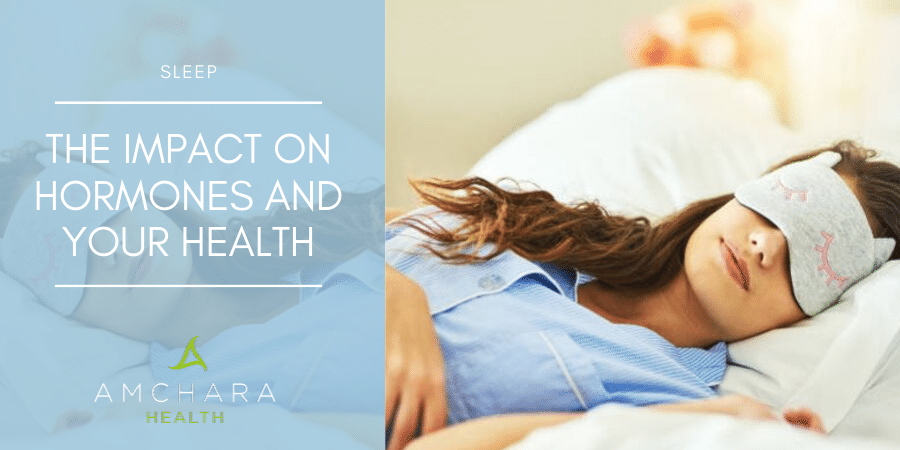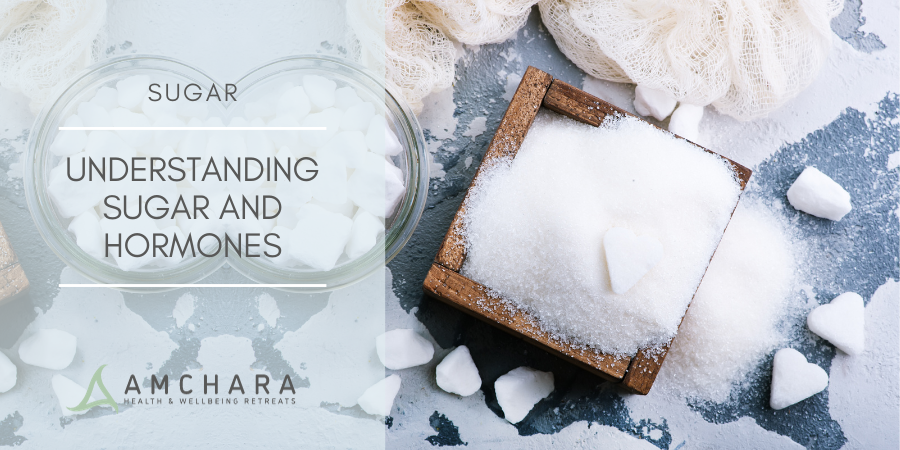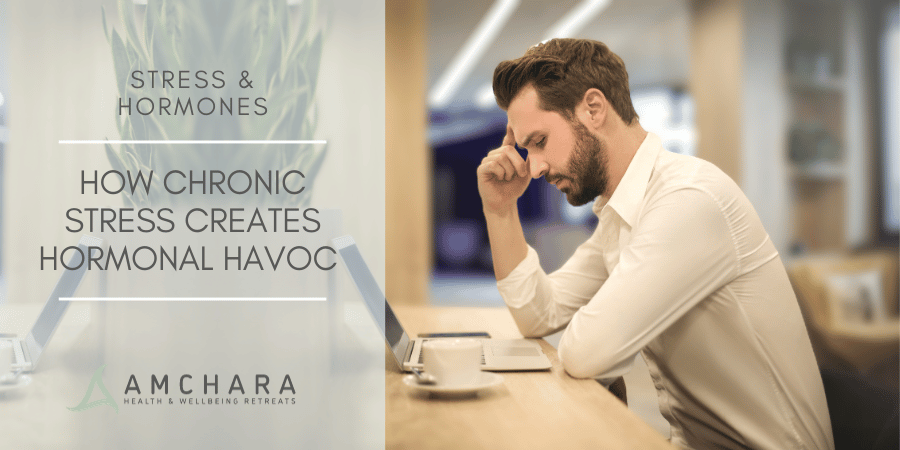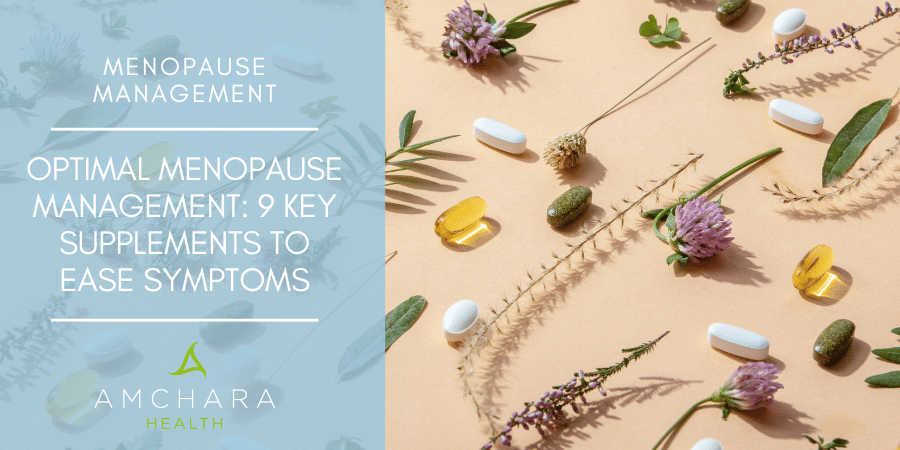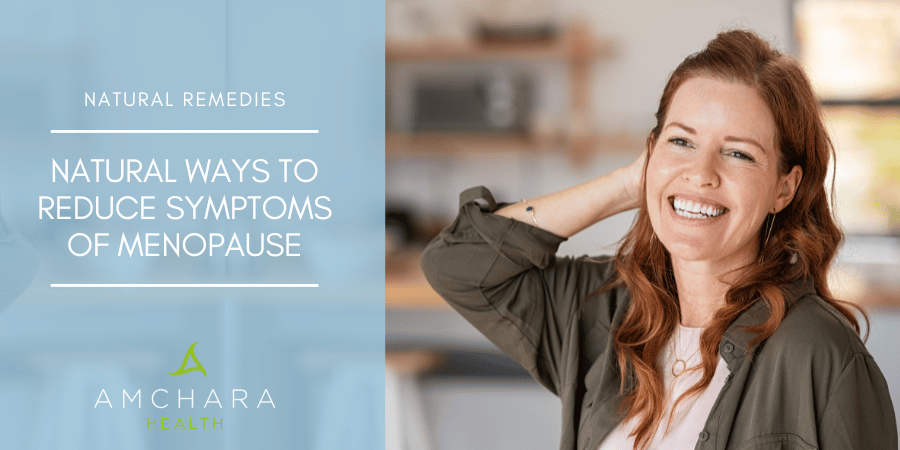Table of Contents:
According to statistics 50-70 million adults in America suffer from lack of sleep and it appears that women suffer more with an estimated 57% of the population experiencing symptoms of insomnia a few times a week.
Although it is often thought of as a passive activity, good quality and adequate sleep is now recognised as an essential aspect of health and those who suffer from insomnia are at increased risk of many health conditions.
Sleep plays a significant role in healing and repairing vital organs and blood vessels and is also important for maintaining a healthy weight, controlling blood sugar and keeping the brain functioning normally.
As well as this it plays a prominent role in hormone regulation.
Sleep deprivation has been associated with several physiological changes.
Research shows that chronic lack of sleep produces hormones and chemicals in the body that can increase your risk of developing heart disease and strokes.
Increased levels of the hormones cortisol and ghrelin, as well as decreased levels of the hormone leptin, can contribute to the aforementioned health conditions and a number of others such as diabetes, high blood pressure, obesity and raised cholesterol levels.
External Sleep Resources:
-
NHS Choices – Sleep – A website providing comprehensive health information and advice in the form of articles, videos and various other resources to help you seek the best help for a range of mental health and wellbeing issues.
-
HealthUnlocked – A peer-to-peer support network helping users to connect with others who share similar health conditions.
-
Reddit – r/Sleep –A discussion forum for sharing news, opinion, and digital content – this particular sub-reddit is for all things relating to sleep.
Animal and human studies indicate that:
-
Restricted sleep is often associated with mild, temporary increases in the hypothalamic-pituitary-adrenal axis (HPA). The HPA involves interactions between the nervous system and hormones secreted by the endocrine glands. It regulates many body processes and controls reactions to stress.
-
Any imbalances in sleep and eating can exert a negative effect on one side or the other because they are linked via a complex hormonal pathway.
-
Sleep deprivation disrupts the internal body clock affecting the body’s regulation of leptin (the satiety hormone) and ghrelin (the hunger hormone).
-
People who are sleep deprived have lower levels of leptin, the hormone that regulates appetites and therefore have bigger appetites consuming on average 385 calories more per day.
-
Inadequate sleep has a harmful impact on endocrine function and carbohydrate metabolism, similar to the effects of normal ageing. It is therefore thought that poor sleep increases the severity of age-related chronic disorders.
-
People who sleep less than 6 hours a night have increased markers of inflammation in the body, which are indicators of stress on the body due to sleep deprivation.
-
There is a strong link between lack of sleep and depression. Studies show that around 75% of individuals with depression have disturbed sleep.
-
People with insomnia are at higher risk of developing depression later in life.
-
Those suffering from diabetes that experience inadequate sleep have higher blood glucose levels and more difficulty controlling their disease than diabetic patients who sleep well.
-
The negative effects of reduced sleep lead to impaired glucose tolerance, reduced insulin sensitivity, and elevated blood pressure, all of which increase the risk of hardening of the arteries. Research has identified a strong correlation between heart disease and individuals who sleep less than 5 hours a day.
How to improve the quantity and quality of your sleep
Insomnia is one of the most common and potentially adaptable health risks in today society.
The good news is, there are many ways that you can improve the quality and duration of your sleep.
Lifestyle Tips
-
Get into a sleep routine by going to bed at the same time every night. Your body will eventually get used to falling asleep at a certain time. Try not to break your routine on the weekends by laying in. If you want to change the time you go to bed – make the change in small increments daily, such as 15 minutes later or earlier.
-
Make sure you wake up at the same time every day. This should happen naturally if you’re getting enough sleep. If you need an alarm to get up then you may need to go to bed earlier. Always maintain regular wake up times even at the weekend.
-
Take regular exercise but not last thing at night – especially strenuous exercise which can affect your ability to fall asleep. Regular exercise can help improve sleep.
-
Try engaging in relaxation techniques before bed. Deep breathing and yoga may help reduce muscle tension and relieve anxiety.
-
Taking a hot bath in the evening with some Dead Sea salts added may help to relax the muscles, as these salts contain many minerals including magnesium, which the body can utilise where needed.
-
Keep your room as dark as possible. You may find blackout blinds useful to eliminate bright lights from outside.
-
Make sure your bedroom is well ventilated and kept at a comfortable temperature. When the room is too hot or cold it can affect sleep. A cool, rather than cold bedroom is often the most conducive to sleep.
-
Reserve the bedroom for sleeping. Don’t use the bed as an office, workroom or recreation room. Ban TV’s computers and mobile phones from the room. Let your body become accustomed to the idea that the bed is associated with sleeping.
-
Put some lavender oil on your pillow case. Lavender is well known for its sleep enhancing properties and is believed to work quickly too.
-
Try a light snack before bed. Foods high in tryptophan, such as bananas, may help you to sleep. Tryptophan is an amino acid that produces the brain chemical serotonin, which in turn is needed to make melatonin the hormone that regulates your sleep/wake cycle and is associated with the onset of sleep.
-
Get into your favourite sleeping position. If you don’t fall asleep within 15-30 minutes, get up, go into another room and try reading until sleepy.
-
Don’t smoke. Smokers take longer to fall asleep, wake more frequently and often experience more sleep disruption.
Nutritional Interventions
According to research, a number of neurotransmitters are associated with the sleep/wake cycle.
These include melanin-concentrating hormone, 5-Hydroxytryptophan (5-HTP), gamma-aminobutyric acid (GABA), orexin, cholinergic, galanin, noradrenaline, and histamine.
It stands to reason then that including nutrients in the diet that act on these brain neurotransmitters may also influence sleep.
Certain foods can influence the production and function of neurotransmitters, including 5-HTP.
To produce 5-HTP the brain uses the amino acid L-tryptophan which is found in foods such as turkey and bananas.
Besides being the precursor to serotonin, tryptophan is also a building block of the sleep hormone melatonin. By manipulating tryptophan it is possible to increase melatonin levels and therefore promote sleep.
10 top nutrition tips for insomniacs:
1. Eat foods high in tryptophan to help raise melatonin levels. Good sources are: whole grains, beans, rice, lentils, poultry, cottage cheese, bananas, turkey, eggs, hummus and pumpkin seeds.
2. Include nuts in your daily diet, especially almonds and walnuts that specifically contain melatonin. Increasing your blood levels of this important hormone can help you sleep more soundly.
3. Research shows that high GI foods such as pasta, white rice, bread, and potatoes may promote sleep; however, they have to be eaten more than 1 hour before bedtime. High GI foods such as potatoes raise blood sugar triggering the release of insulin which the body uses to escort serotonin and tryptophan across the blood brain barrier inducing sleep.
4. Try to eat good-quality protein with every meal to help with blood sugar balance e.g. fish, poultry, eggs, nuts, seeds, lentils, and beans
5. Eat plenty of fruit, in particular, those that contain melatonin such as tart cherries, bananas, pineapple and oranges as these may help you fall asleep faster. Research has found that kiwis contain antioxidants and serotonin – these may help with sleep disorders by increasing sleep onset and duration.
6. Avoid stimulants such as alcohol 4 to 6 hours prior to bedtime. Although alcohol induces sleep, a few hours later as the blood alcohol levels fall, it triggers a stimulant or wake-up effect
7. Caffeine is another stimulant which should be avoided 4-6 hours before bedtime
8. Don’t drink too many liquids prior to going to bed as this can cause you to wake frequently to use the bathroom.
9. Try chamomile tea which is a popular sleep aid. You can find it in most supermarkets these days and research shows that it has anti-anxiety properties and aids relaxation.
10. Avoid heavy or spicy foods 4-6 hours before bedtime as these can affect your ability to stay asleep.
Supportive Supplements
It’s not always easy to stick to a perfect diet especially when you are really tired and hormonally challenged!
At times like this, it is a good idea to have some sleep-friendly supplements at hand in your medicine cabinet.
There’s a really good range of nutrients and herbs that are tried and tested for promoting restful sleep, so why not experiment with some of our top picks…
Magnesium
Adequate magnesium levels are essential for a good night’s sleep; in fact, a deficiency in magnesium has been shown to cause sleep disturbances, agitated sleep, and frequent wakening.
Research has identified that a diet high in magnesium is associated with deeper less interrupted sleep. Magnesium may exert its beneficial effects because of its muscle relaxant effects.
Theanine.
L-Theanine is an amino acid found in tea but not coffee and demonstrates pharmacological actions such as promoting feelings of calmness and decreasing alertness.
Calcium.
According to research published in European Neurology, calcium levels are higher during the rapid eye movement (REM) phase of deep sleep.
It was found that disturbances in sleep particularly during REM are related to calcium deficiency and once blood calcium levels were returned to normal a natural sleep cycle returned.
It may be because calcium plays a role in helping tryptophan to produce melatonin, which also explains why dairy products that contain both tryptophan and calcium are one of the most effective sleep inducing foods.
Lemon balm
Botanicals such as Lemon balm, also known as Melissa officinalis, offer a great alternative option to prescription drugs for alleviating symptoms due to insomnia.
The results from a pilot trial found that as many as 85% of the participants experienced relief from sleep disturbances after taking lemon balm for 15 days.
Valerian
Valerian is a traditional herbal remedy that has been used for its calming effects since Hippocratic times.
Valerian contains the compounds valepotriates, Valerian acid and aqueous constituents that contribute to its sedative properties.
It is thought to inhibit the breakdown of the neurotransmitter gamma-amino butyric acid, otherwise known as GABA, which is responsible for promoting calm and relaxation.
The compounds in Valerian bind to GABA type A receptors which induce a calming effect.
A review of several studies found Valerian to be effective at improving sleep quality and decreasing night-time awakenings.
Passion flower
Research has shown that passion flower may significantly extend sleeping time. As with Valerian, passion flower is believed to work by increasing levels of GABA in the brain..
American and Korean ginseng
Results of several studies indicate that ginseng may help to maintain normal sleep and wakefulness. Ginseng is reported to have an inhibitory effect on the central nervous system, promoting sleep regulating effects.
Conclusion:
If you find after following all these tips that sleep is still eluding you a stay at Amchara could be the answer.
Our peaceful retreats offer you the opportunity to kick back and relax within a supportive and nurturing environment.
You may find that the combination of healthy nutrition, complementary therapies and a stress-free and relaxed setting could be all you need to get back into a natural sleep cycle.
Sleep-related topics you may be interested in:
References/Sources
-
AlDabal L, BaHammam AS. Metabolic, Endocrine, and Immune Consequences of Sleep Deprivation. The Open Respiratory Medicine Journal. 2011;5:31-43.
-
Al Khatib HK, Darzi J, Harding SV, & Pot GK. The effects of partial sleep deprivation on energy balance: a systematic review and meta-analysis. European Journal of Clinical Nutrition, 2016; DOI: 10.1038/ejcn.2016.201.
-
Alvin I et al.Pilot trial of Melissa officinalis L. leaf extract in the treatment of volunteers suffering from mild-to-moderate anxiety disorders and sleep disturbances. Mediterranean Journal of Nutrition and Metabolism; 2011,4,3:211-18.
-
Bruni O. et al. L–5–Hydroxytryptophan treatment of sleep terrors in children. European Journal of Pediatrics. (2004) 163(7):402–7.
-
Cappuccio FP, Cooper D, D’Elia L, Strazzullo P & Miller MA. Sleep duration predicts cardiovascular outcomes: a systematic review and meta-analysis of prospective studies. European Heart Journal, 2011; DOI: 10.1093/eurheartj/ehr007.
-
Cerny A, Shmid K. Tolerability and efficacy of valerian/lemon balm in healthy volunteers (a double-blind, placebo-controlled, multicentre study). Fitoterapia (1999) 70:221–8. Held K. Oral Mg(2+) supplementation reverses age-related neuroendocrine and sleep EEG changes in humans. Pharmacopsychiatry (2002) 35(4), 135–43.
-
Fang SC, Lin HH, Liu JF & Tsa PS. Effect of kiwifruit consumption on sleep quality in adults with sleep problems. Asia Pac J Clin Nutr. 2011;20(2):169-74.
-
Halson SL. Sleep in Elite Athletes and Nutritional Interventions to Enhance Sleep. Sports Medicine 2014, 44,1: 13-23.
-
Hornyak M, Voderholzer U, Hohagen F, et al. Magnesium therapy for periodic leg movements-related insomnia and restless legs syndrome: an open pilot study. Sleep 1998;21:501–5.
-
https://sleepfoundation.org/insomnia/content/insomnia-women [Accessed 30.7.18]
-
http://www.sleepcouncil.org.uk/SleepAdvice/ [Accessed 30.7.18.]
-
http://www.sleepfoundation.org/article/ [Accessed 25.7.18.]
-
http://www.ncbi.nlm.nih.gov/pubmed/18979946 [accessed 27.7.18.]
-
http://care.diabetesjournals.org/content/29/3/657 [Accessed 2.8.18.]
-
http://www.anaturalhealingcenter.com [Accessed 3. 8.18. ]
-
Leproult R, Spiegel K & Van Cauter E. Impact of sleep debt on metabolic and endocrine function.Lancet 1998; 354,9: 1435-39
-
Leproult R, Van Cauter E. Role of sleep and sleep loss in hormonal release and metabolism. Endocr Dev. 2010;17:11-21.
-
Neri DF, Wiegmann D, Stanny RR, et al. The effects of tyrosine on cognitive performance during extended wakefulness. Avit Space Environ Med. (1995) 66:313–319 .
-
Nieder J Dartsch S, Nieder J, Schmidt U, Seifert B & Wagler P. Magnesium–a new therapeutic alternative in primary dysmenorrhea. Zentralblatt fur Gynakologie 1989; 111(11):755-760.
-
Penland J. Effects of trace element nutrition on sleep patterns in adult women. Fed Am Soc Exp Biol J (1988) 2:A434
-
Yukio Fukuyama, Masatsugu Hayashi. Sleep Electroencephalograms and Sleep Stages in Hypoparathyroidism. Eur Neurol (1979)18:38–48
